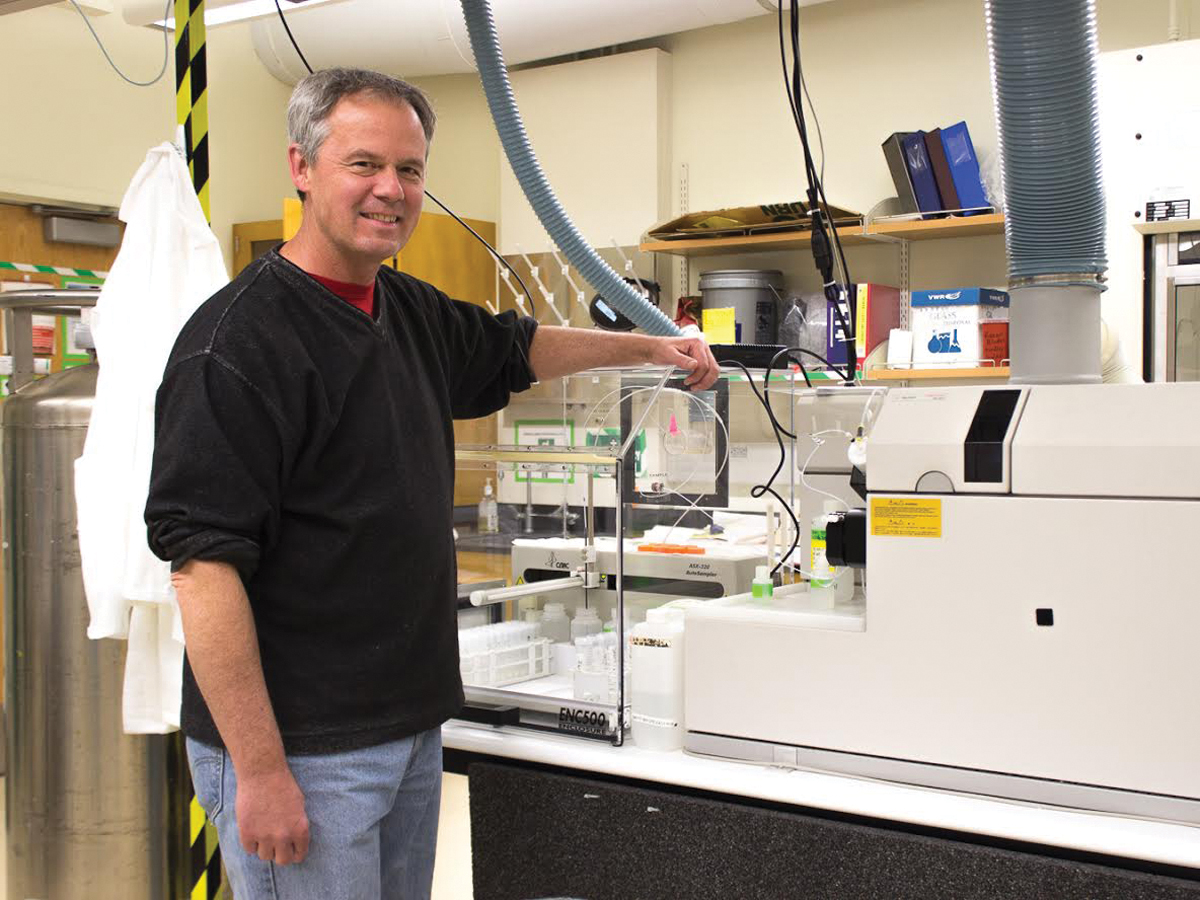
Distinguished biogeochemistry professor Timothy Lyons has been honored as a 2015 Geochemical Fellow by the Geochemical Society (GS) and the European Association of Geochemistry (EAG). He is one of 10 professors this year to be selected from different universities around the world, and was given this title due to his career-long contributions to geochemical research.
“The GS and the EAG are by far the preeminent communities of geochemistry in the world,” Lyons stated. “To be picked in a given year to be one of the 10 recognized for a lifetime of achievement is a pretty big deal and so I’m thrilled.”
The Geochemical Fellow title was established in 1996 jointly by the GS and EAG, both of which promote geochemistry-related research. A board comprised of international scientists selects the recipients of the award.
Lyons attributes his success to his research team, including graduate students and postdoctorates at UCR. “Your success is largely based on making smart decisions of the people you put around you. I’ve been really fortunate about that. That makes an award that’s really an award that’s earned by a lot of people,” Lyons said.
Lyons noted that his closest collaborator for the past 15 years was also one of the 10 awardees, in addition to a classmate from his time at Yale University.
Lyons currently works for the earth sciences department at UC Riverside. His research involves using chemical methods to understand the composition, particularly the amount of oxygen, in Earth’s early ocean. Recently, his team was awarded a near-$8 million grant to look for life on planets beyond the solar system.
“NASA is allowing us to use our studies of the early Earth … to make inferences about planets that are literally light years away … It’s looking beneath our feet at our history so that we can look overhead to see what’s possible,” he said.
Lyons recalls having an early interest in geology and collecting minerals as a child. Inspiration also came from famous geochemist Robert Berner, whom Lyons studied the Black Sea with while at Yale University. “Oceans without oxygen were very common in the past,” he said. “It’s a very special kind of life that lives in the absence of oxygen.”
Lyons also provided encouragement for undergraduate students in science fields. “The luckiest people in the sciences or in life are the ones who find something they really love and can make a living at,” he expressed.
“In an academic career especially, the return on investment is so tangible. It’s this idea of discovery, being able to do something that nobody else has ever done before,” he said.








